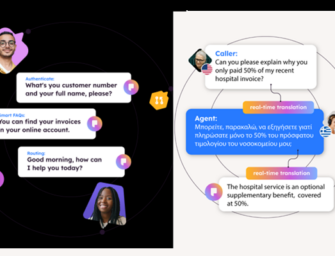Sonos Likely Planning for IPO

Variety is reporting that Sonos is considering an IPO. The conclusion was derived from several new job listings for the company. A Sonos spokesperson declined to comment but did say that an, “IPO is something all tech companies think about.” This is not exactly a strong denial. Variety concludes:
“Connected-speaker maker Sonos is gearing up for a public offering, if its latest job postings are any indication. In recent weeks, the company began the search for applicants with public company experience to fill key legal and finance roles. One of the job listings also mention that Sonos is preparing its financial reporting to comply with rules for public companies.”
Some of the job postings include request for public company experience as a controller or assistant controller. Within the job descriptions are requirements that the candidate have SOX 404 compliance experience. SOX compliance is burdensome in terms of staff time, audit controls, technology and cost and is one of the key reasons so many companies delay initial public stock offerings. Introducing these controls is a step that few companies will take unless they are preparing an IPO. In addition, Variety notes that Patrick Spence, Sonos CEO, told the publication in 2017:
We are considering whether an IPO would be the next best thing. We are in a strong place, growing, profitable.
Sonos Rapidly Lost Market Share to Amazon
Strategy Analytics’ David Watkins commented in mid-2017 that, “Sonos has long been synonymous with connected home audio and as recently as 2014 it accounted for 50% of the small but growing Wi-Fi speaker market.” However, by the end of 2016, Strategy Analytics’ estimated that Sonos market share fallen to about 29% compared to 36% for Amazon. This was particularly concerning for Sonos because Watkins also forecasted that smart speakers would rise from 42% of the wireless speaker market in 2016 to “nearly 90% by 2022.”

Sonos to Compete on Sound Quality
Sonos responded by introducing the Alexa-enabled Sonos One in October 2017. Voicebot consumer survey data suggest Sonos One had an impressive fourth quarter in terms of unit sales. The company quickly established 2.6% market share among smart speaker owners, by far the largest share among high-end devices. Google Home Max and Harman Kardon Invoke, also smart speakers marketed for premium sound quality, together accounted for only about 1.2% share. Sonos had strong performance and resurgence at the top end of the market even as it lost share among wireless speaker sales overall.
However, the bigger concern is that Apple HomePod sales will erode Sonos market share and make the high-end segment much more competitive. With that said, Sonos has performed well in head-to-head sound quality tests with HomePod. Consumers can also purchase two Sonos One devices with discounts for the price of single HomePod so it is competing at the high end, but at a much lower price point than Apple and the Google Home Max.
Sonos to Also Compete on Voice Assistant Flexibility
In addition to sound quality, Sonos is also planning to compete on flexibility in terms of choosing your favorite voice assistant. The company currently supports Amazon Alexa and has announced plans for Google Assistant support. The company CEO has also expressed interest in supporting Apple Siri. Sonos wants to be the one device that consumers can use with multiple voice assistants, potentially simultaneously. 9to5Mac reported on a comments by Spence in a Recode podcast interview where he said that none of the big three voice platforms asked for an exclusivity period.
I went to all of them and said, ‘This is what we plan to do: We plan to do it just like we’ve done music services. We’re going to have multiple voice services because we believe that’s the right thing for the customer.’
Sonos isn’t the only manufacturer planning to support multiple voice assistants among its speaker portfolio. Harman Kardon has speakers dedicated to Amazon Alexa, Google Assistant and Microsoft Cortana respectively. The company also indicated that it plans to also support Samsung Bixby. The difference is that Sonos currently plans to support multiple voice assistants from a single device. Sonos CEO Spence also told Recode:
“This is a difference versus the mobile space, where it’s a very personal device, you’re going to use one set of services that matter to you. We know, in the home, there’s multiple music services used. My spouse uses a different one than I do, my children use a different one. With voice services, I see it developing very similarly.”
Time will tell whether Sonos can effectively execute multi-assistant strategy. One thing that seems clear is the company will need capital to compete is what is quickly becoming a very competitive product category. An IPO seems like a logical solution.
Sonos Launches New Alexa Speaker and Alexa Voice Control Public Beta
Amazon Echo Maintains Large Market Share Lead in U.S. Smart Speaker User Base








